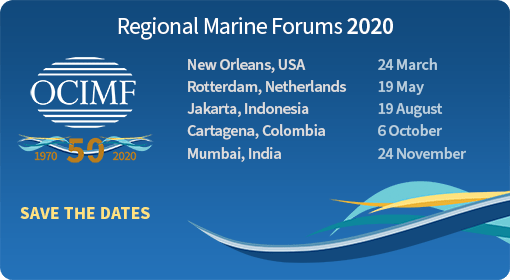"On a happier note, I bring your attention to the venues and dates of the OCIMF North America and Europe/Africa Regional Marine Forums mentioned in the newsletter. These promise to be interesting, collaborative and exciting events – Covid-19 permitting."
Director's Log
This year is certainly causing a few unexpected disruptions.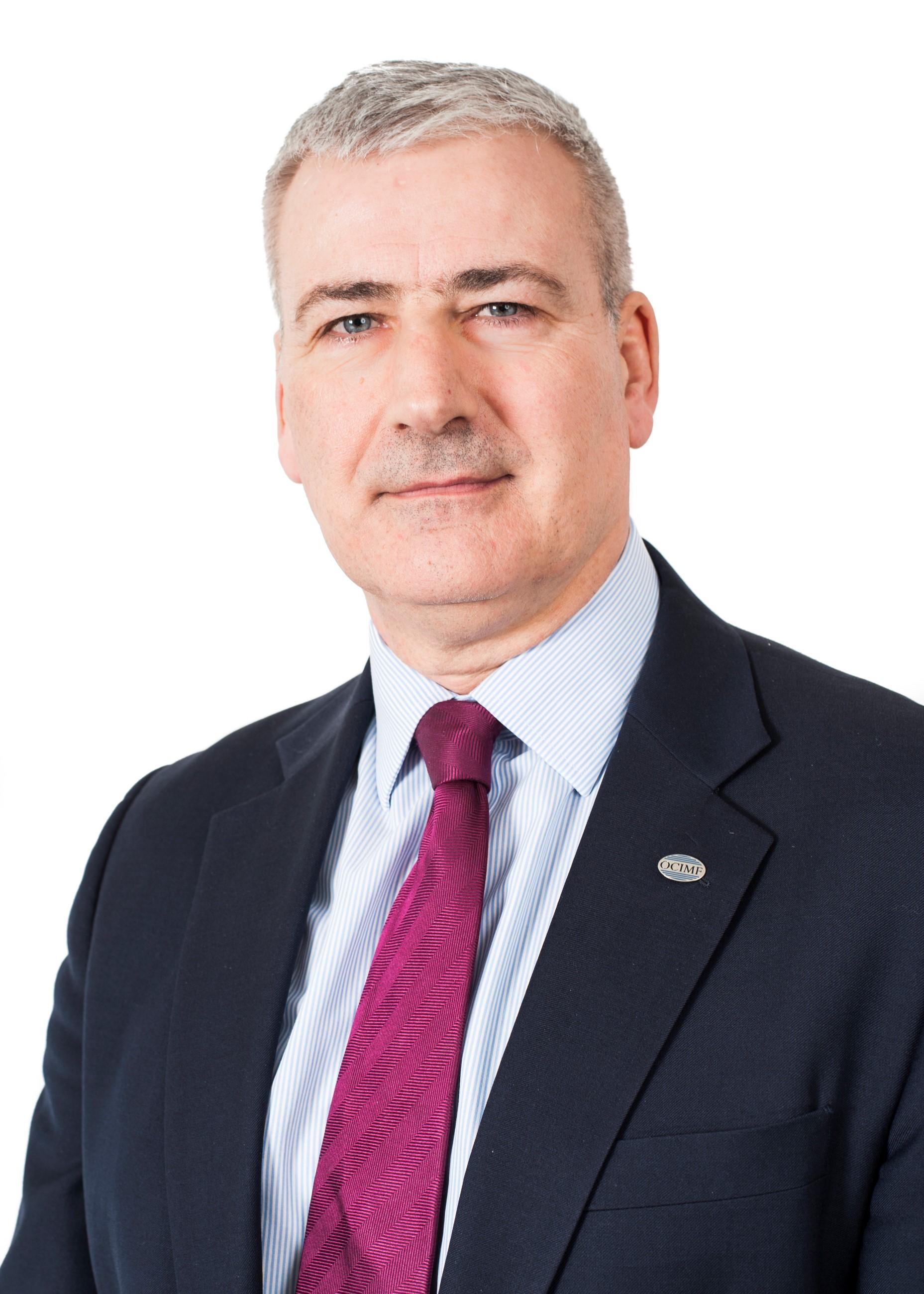
The first of those was an assertion that the new low sulphur fuels were more aromatic than the heavy fuel oils (HFOs) they replaced and that would lead to increased black carbon emissions. The industry experts have firmly rejected this idea at the International Maritime Organization (IMO) by considering the facts. The experts noted that most new fuels are more paraffinic rather than aromatic which should lead to less black carbon emissions. However, black carbon emissions are complex and difficult to predict through simple arithmetic calculation based on minimal laboratory testing and will definitely be wrong if based on the wrong assumptions. To date, I am not aware of any reported safety impacts to shipping during the transition to these new types of fuels – a good indication that the changeover was well managed.
The second (and more disruptive to some) is the emergence and spread of Covid-19 which is starting to affect travel and businesses. You can read in this newsletter about the steps that OCIMF has taken so far to mitigate the threat to ships, inspectors and auditors. However, the situation is evolving and changes daily. None of us can predict the future and the difficulty is balancing practical mitigating measures against the danger of overreacting. OCIMF continues to monitor the situation and the advice of organisations such as the World Health Organization (WHO) and will take whatever steps are considered appropriate. We will keep our stakeholders updated as and when additional steps are put in place.
Another disruption which, although not new, is still unresolved is the security situation in the Gulf of Guinea (GoG). OCIMF has been working very closely with Nigeria, in particular the Nigerian Maritime Administration and Safety Agency (NIMASA), to support their Deep Blue Project. This project is an excellent initiative which should improve the protection of ships and crews and lessen the danger from piracy, kidnap and ransom in the area. The Nigerian government and NIMASA are showing a commitment to address the situation that has not always been evident in the past. We have an opportunity to positively assist where we can and by working collaboratively, achieve the common goal of all – to reduce and eliminate security concerns in the GoG.
On a happier note, I bring your attention to the venues and dates of the OCIMF North America and Europe/Africa Regional Marine Forums mentioned in the newsletter. These promise to be interesting, collaborative and exciting events – Covid-19 permitting.
I wish you a happy, healthy and secure March.

Rob Drysdale
Director OCIMF
Do you have news that you'd like to share with our readers? If so email
Coronavirus (Covid-19) Outbreak
The outbreak of novel coronavirus (Covid-19) in the People's Republic of China (PRC) sadly continues to cause loss of life.
The outbreak is impacting travel within PRC and internationally. Many countries are providing their citizens with health and travel advice reflecting that available from the World Health Organization (WHO).
That advice continues to develop alongside the situation, with governments issuing advice ranging from suspending all travel to enforcing a quarantine period on those travellers who may have visited affected areas.
This has added a further layer of complexity to the management of inspector courses. OCIMF has therefore decided to suspend all SIRE (Cat-1 and Cat-3) audits, SIRE and OVID refresher courses and new-inspector courses for the year 2020.
OCIMF will review the situation at the end of June 2020 to assess whether inspector courses can be reinstated. OCIMF will communicate any decisions.
As this will have an impact on a number of stakeholders, OCIMF is liaising with all those that may be affected and providing them with specific and relevant advice. This will include members, SIRE and OVID inspectors and SIRE Auditors.
Please refer to a list of Frequently Asked Questions for the latest information:
OCIMF will monitor the situation and provide updates.
If you have any questions, contact:
Ajay Gour, OCIMF Training and Accreditation Manager
OVID Programme Recipients
Since 2017, the Offshore Vessel Inspection Database (OVID) Programme recipient membership has offered non-member companies access to the OVID programme.
Types of companies eligible/ineligible include:
| Eligible | Ineligible |
| Oil companies that are not currently OCIMF members. | Media |
| Offshore project management, engineering and construction companies. | P&I clubs. |
| Windfarm operators. | Hull underwriters. |
| Offshore terminal/ installation operators. | Vessel inspection or vessel vetting companies. |
| Logistics/supply base operators. | Classification Societies. |
| Marine drilling contractors. | Environmental groups. |
| Marine geophysical contractors. | Academic/research organisations. |
| Owners of vessels who also provide wider technical services to the offshore industry and charter vessel/units to provide services to OCIMF members. | Charter brokers and/or attorneys or solicitors. |
| Government agencies | Vessel Commercial Managers. |
| Other parties or individuals looking to profit from OVID. |
OVID Programme Recipients can submit:
- Inspection Access Request: to view existing Offshore Vessel Inspection Questionnaires (OVIQs) on the OVID system. Note: Technical Vessel Operators (TVO) can control which OVID Programme Recipient can see a report of their vessel.
- Vessel Inspection Request: to request an inspection via the Offshore Vessel Request platform (OVIR) when OVIQ is unavailable.
Companies interested in becoming Recipients should complete an online registration form, which will be reviewed by the OCIMF Secretariat before access is granted.
Offshore Vessel Inspection Request platform
The Offshore Vessel Inspection Request platform (OVIR) reduces the time OVID Submitting Members and OVID Programme Recipients spend hiring inspectors by allowing TVOs to track and request annual OVIQ renewals.
Once TVOs and Recipients submit requests to the OVIR platform, it will notify OVID Submitting Members who can decide whether to commission the inspection.
TVOs and Recipients can propose an inspector, date and location for the inspection, but OVID members do not have to accept these proposals.
Costs for the OVID inspections are not part of the OVIR and must be discussed separately with the OVID Submitting Members.
A full house at SIRE User Group meeting

OCIMF hosted a meeting of the SIRE User Group (SUG) on 4 February in Dubai, United Arab Emirates (UAE).
The meeting was attended by delegates who use the SIRE programme, including tanker operators, members and inspectors.
These meetings are a valuable opportunity for the industry to interact with the members of the SIRE Focus Group and discuss issues of interest. The OCIMF Secretariat presented a range of issues for discussion which included SIRE performance, the incident and Port State Control (PSC) report repositories and their benefit to the industry, as well as issues related to compliance and ethics. An update on the development and progress of the Vessel Inspection Programme (VIP) project was also presented.
OCIMF hosts these meetings regularly to enable and encourage SIRE programme users to share their experiences and provide feedback on the programme’s operation. These meetings are chaired by the SIRE Focus Group (SFG) Chairman and provide an opportunity for attendees to engage directly with SFG members.
For more information, contact Ajay Gour, OCIMF Training and Accreditation Manager.
Global Inland and Coastal Barge Focus Group
11th meeting: 28-29 January, London, UK (hosted by OCIMF)
The Global Inland and Coastal Barge Focus Group (GICBFG) reviewed and discussed:
- Status updates on the OCIMF strategy implementation.
- Focus group objectives for 2020 within OCIMF’s overall objectives for 2020.
- Progress on the OCIMF Global Barge strategy’s plan and priorities.
- Possible improvements in the CAT-3 SIRE programme.
- Updates on the OCIMF/EBIS transition project, the International Safety Guide for Inland Navigation Tank-Barges and Terminals, Second Edition (ISGINTT) and work being undertaken by regional Inland and Coastal Barge Focus Groups (ICBFG).
After the meeting, the GICBFG contributed their inland and coastal barge expertise to the bowties being developed in OCIMF’s workshop on risk and opportunities.
Marine Technical Sub-committee
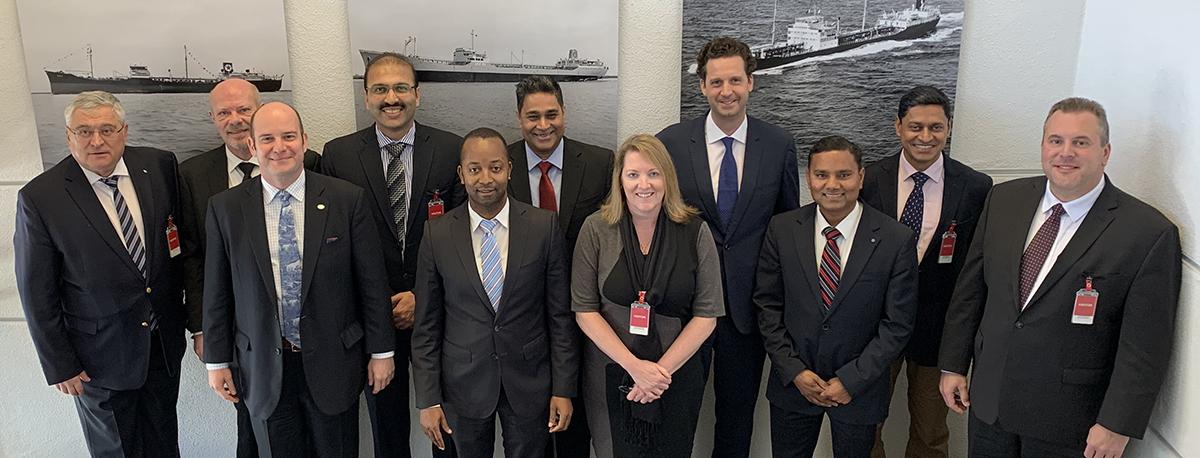
40th meeting: 28-30 January 2020, San Ramon, USA (hosted by Chevron)
The Martine Technical Sub-committee (MTSC) reviewed:
- Extensive work on MTSC Sub-committee management including prioritisation, resourcing, and scheduling, as well as decisions on key position papers for addressing work requests from the principal committees.
- Presentations by Lloyd’s Register and Chevron Shipping Regulatory Affairs Manager on current and emerging issues on classification, regulatory and statutory matters, including the California perspective.
- Digitalisation in shipping updates by member companies from BP, Chevron and Total and overviews on digital compliance and future of digital class by Lloyd’s Register.
- Secretariat updates on the OCIMF strategy, IMO strategy and Environmental Sub-committee plan, as well as the International Safety Guide for Oil Tankers and Terminals (ISGOTT) revision and Vessel Inspection Programme (VIP) projects.
- Secretariat updates on partner organisation activities and future work streams of INTERTANKO, National Association of Corrosion Engineers (NACE), SIGTTO, Society of Gas as a Marine Fuel (SGMF) and Tanker Structure Cooperative Forum (TSCF).
- Proposed reviews of older publications related to engineering/technical matters
Environmental Sub-committee
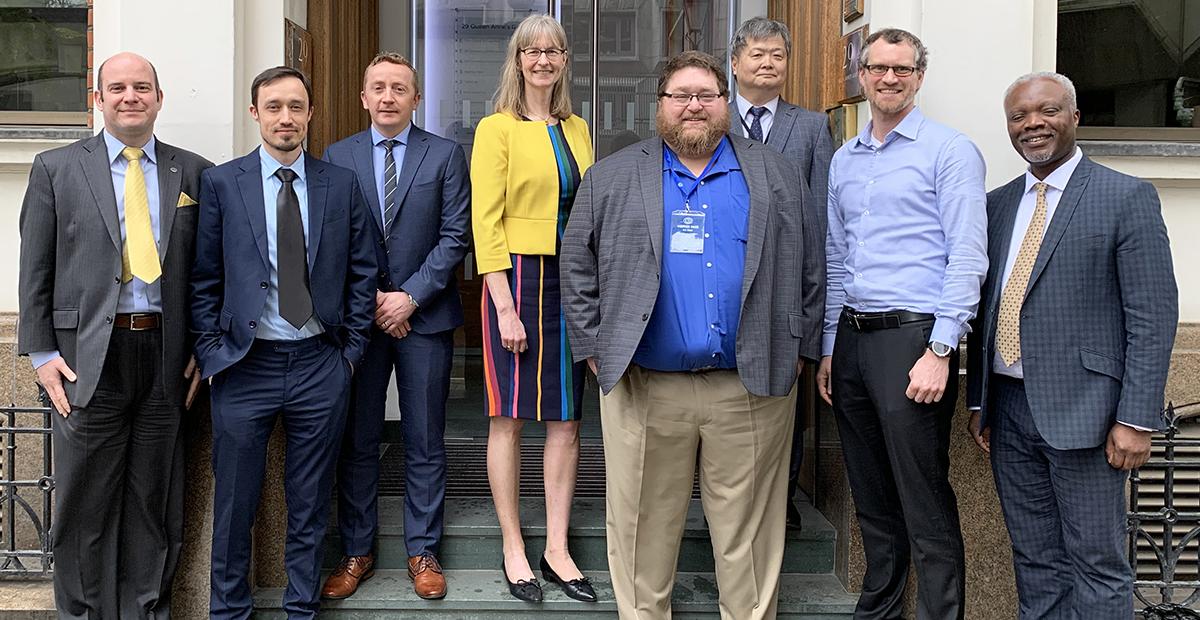
3rd meeting: 12-13 February 2020, London, UK (hosted by OCIMF)
The sub-committee reviewed:
- Development of an OCIMF strategic plan on the environment.
- Development of a risk bowtie for OCIMF on the environment.
- Secretariat updates on the OCIMF strategy and new committee structure.
- Secretariat updates on the International Maritime Organization (IMO), EU and other industry forums on environmental issues.
Marine Structures and Civil Engineering Focus Group
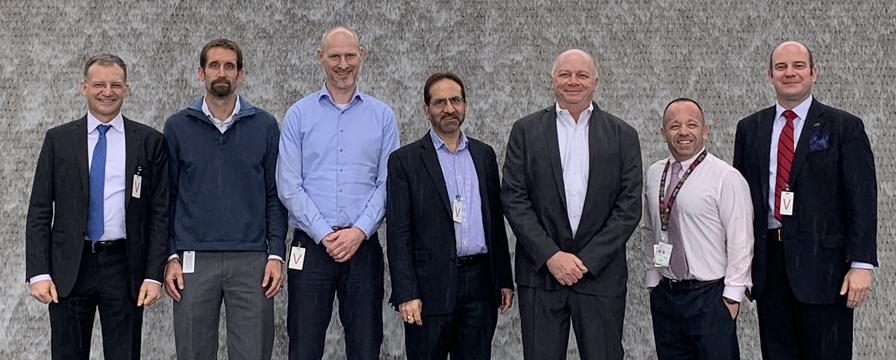
9th meeting: 19-20 February 2020, Houston, USA (hosted by ExxonMobil)
The group reviewed:
- Review group recommendations for a publication’s review of the Guidelines for the Design, Operation and Maintenance of Multi Buoy Moorings (MBM).
- Working group updates on the revision of the Jetty Maintenance and Inspection Guide.
- Working group updates on alternative mooring technology equivalency criteria guidance work.
- Secretariat and member updates on working groups of British Standards Institute (BSI), PIANC and SIGTTO.
IMO updates
The seventh meeting of the International Maritime Organization (IMO) Sub-Committee on Navigation, Communications and Search and Rescue (NCSR 7) was held from 15-24 January in London, UK.
The meeting agreed:
- To change Traffic Separation Schemes (TSSs) off the coast of Norway, Poland and France and a two-way route in the Great Barrier Reef and Torres Strait.
- To recognise the Indian Regional Satellite Positioning System (IRNSS) as one of the IMO’s worldwide radionavigation systems.
- To send the draft performance standards for shipborne receivers for the Japanese satellite positioning systems to the Maritime Safety Committee (MSC) for adoption in May 2020.
- To request MSC to approve draft revised guidelines for Vessel Traffic Services (VTS) for final adoption by the 32nd Assembly in December 2021. The update includes reference to guidance produced by other organisations, e.g. the International Association of Marine Aids to Navigation and Lighthouse Authorities (IALA).
- To continue work on the IMO's Guidelines on places of refuge for ships in need of assistance. This work item is to update existing guidelines (Resolution A.949(23)) based on lessons learned by EU member states. Major updates include co-ordination among coastal states. It also addresses information-sharing within a state, as well as the involvement of other stakeholders, e.g. insurance companies and Classification Societies. NCSR will also harmonise various forms used for informing stakeholders.
Venues announced for regional marine forums
North America Regional Marine Forum
Tuesday 24 March 2020 Hyatt Regency, New Orleans, USA
Europe and Africa Regional Marine Forum
Tuesday 19 May 2020 Mainport by Inntel Hotels, Rotterdam, Netherlands
